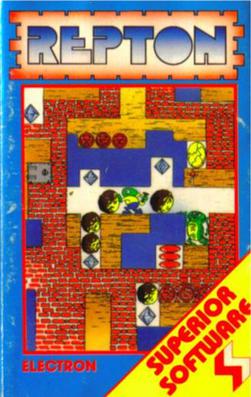
Repton is a video game originally developed by 16-year-old Briton Tim Tyler for the BBC Micro and Acorn Electron and released by Superior Software in 1985. The game spawned a series of follow up games which were released throughout the 1980s. The series sold around 125,000 copies between 1985 and 1990 with Repton 2 selling 35,000 itself. The games have since been remade for several modern systems, including iRepton for the iPhone / iPod Touch in 2010, and Android Repton 1, Android Repton 2 and Android Repton 3 from 2016 to 2018.

Superior Software Ltd is a video game publisher. It was one of the main publishers for the BBC Micro and Acorn Electron computers in the 1980s and early 1990s. It currently releases games for Microsoft Windows, iOS and Android; mostly updates of its original games.

Tynesoft Computer Software was a software developer and publisher in the 1980s and early 1990s.
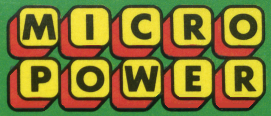
Micro Power was a British company established in the early 1980s by former accountant Bob Simpson. The company was best known as a video game publisher, originally under the name Program Power. It also sold many types of computer hardware and software through its Leeds 'showroom' or via mail order.
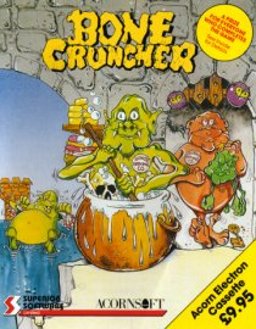
Bone Cruncher is a puzzle video game for the Acorn Electron, BBC Micro, and Commodore 64 first published by Superior Software in 1987. It uses the "rocks and diamonds" mechanics of Boulder Dash. An Amiga version was released in 1988.
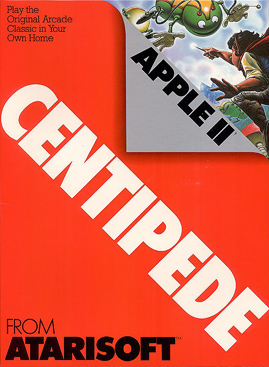
Atarisoft was a brand name used by Atari, Inc. in 1983 and 1984 to publish video games for non-Atari home computers and consoles. Each platform had a specific color for its game packages: video games sold for the Commodore 64 were in green boxes, games for the TI-99/4A in yellow, the IBM PC in blue, and so on.

Artic Computing was a software development company based in Brandesburton, England from 1980 to 1986. The company's first games were for the Sinclair ZX81 home computer, but they expanded and were also responsible for various ZX Spectrum, Commodore 64, BBC Micro, Acorn Electron and Amstrad CPC computer games. The company was set up by Richard Turner and Chris Thornton. Charles Cecil, who later founded Revolution Software, joined the company shortly after it was founded, writing Adventures B through D. Developer Jon Ritman produced a number of ZX81 and Spectrum games for Artic before moving to Ocean Software.
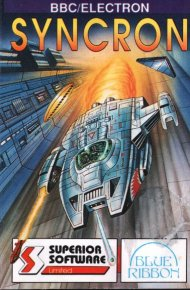
Syncron is a vertically scrolling shooter written by Gary Partis for the BBC Micro and Acorn Electron and published by Superior Software in 1987.

Hunchback is a video game developed by Century Electronics and published in arcades in 1983. The game is loosely based on the 1831 Victor Hugo novel The Hunchback of Notre Dame and the player controls Quasimodo. Set on top of a castle wall, the player must guide the Hunchback from left to right while avoiding obstacles on a series of non-scrolling screens. The goal of each screen is to ring the church bell at the far right.
Alligata Software Ltd. was a computer games developer and publisher based in Sheffield in the UK in the 1980s.

Colossus Chess is a series of chess-playing computer programs developed by Martin Bryant, commercially released for various home computers in the 1980s.
Atlantis Software was a London-based UK computer games publisher that released a number of games during the 1980s and early 1990s.
Addictive Games was a UK video game publisher in the 1980s and early 1990s. It is best known for the Football Manager series of games created by company founder Kevin Toms. The company was originally based in Milton Keynes, England, and later relocated to Bournemouth, in southern England.

Survivors is a game published by Atlantis Software in 1986 for the ZX Spectrum. It was ported to the MSX, Atari 8-bit family, Commodore 64, Commodore 16, Acorn Electron, and BBC Micro and the Amstrad CPC (1988). It is a puzzle game based on the "rocks and diamonds" mechanics of Boulder Dash.

Deathstar is multidirectional shooter for the Acorn Electron and BBC Micro developed by Peter Johnson and originally published in the UK by Superior Software in 1985. It is a clone of the arcade game Sinistar.
Diamond Mine is a maze video game first published by MRM Software for the Acorn Electron and BBC Micro home computers in 1984. Diamond Mine was reissued by Blue Ribbon in 1985 and ported to other systems in 1985 and 1986. Blue Ribbon released a sequel, Diamond Mine II, at the same time. Both games are similar to the 1983 game Oil's Well, which itself is a re-themed version of the 1982 Anteater arcade game.
The English Software Company, later shortened to English Software, was a Manchester, UK-based video game developer and publisher that operated from 1982 until 1987. Starting with its first release, the horizontally scrolling shooter Airstrike, English Software focused on the Atari 8-bit family of home computers, then later expanded onto other platforms. The company used the slogan "The power of excitement".

By Fair Means or Foul is a boxing video game first published for a range of 8-bit home computers in 1988 by Superior Software. It was later reissued with the new title by Codemasters who also published conversions for 16-bit computers. The game offers a variety of boxing moves including fouls. The game received mixed reviews.